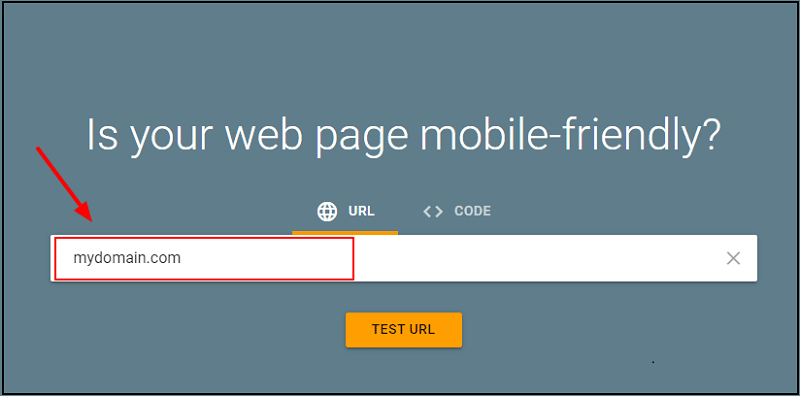Domain authority has now become the most crucial factor in the world of SEO.
Think about it!
Whenever you review a website or blog for some purpose, which SEO measure do you rely on?
Yes, it’s obviously domain authority along with backlinks, spam score, and so on.
So, it validates that improving your domain authority is important for the overall SEO and ranking of your website.
But most newbie bloggers make a fatal mistake in the context of domain authority.
They think that improved domain authority is a magic key to their success in rankings and start using toxic methods to build it.
They indulge in practices like buying toxic backlinks, and keyword stuffing to name a few.
In this post, I will provide satisfying answers to your confusion and misunderstandings about Domain Authority.
What Is Domain Authority?
Domain authority is a ranking factor made by Moz which estimates how likely a website is to rank on search engine results.
Moz determines the domain authority of a website from 1 to 100 on a logarithmic scale.
This means that it’s easy to grow your authority from 15 to 30 than from 40 to 50.
Higher the domain authority> Higher the difficulty to upgrade it
It’s determined using a dozen of ranking factors.
Like on-page SEO, backlink profile of blog, several referring root domains, social credibility, and more.
One more thing you need to focus on!
It’s only a comparative tool that assigns domain authority to a website using its own mechanism.
Now, on basis of the above things we would study whether it’s really important to look for your domain authority or not.
Check out this case study of 49 SaaS businesses by
Strategically to know further about the different factors affecting domain authority.
Is Domain Authority Really Important?
This question is a little confusing.
The official creator of the domain authority metric, Moz tells that you could use it as a SERPs ranking predictor.
But you should not only rely on it for the progress of your website.
It helps us to give a precise prediction about how likely a website could rank in search pages using different factors.
Making it easy for us to spy on competitors and our own growth rather than determining factors like backlinks, page speed, and more all alone.
Another question!
Is it important and worth your time to increase your domain authority?
Yes, it is but as far as you are not using any spammy and black hat SEO methods to increase it.
Find Your Domain Authority
If you are using any of paid tools like Semrush and Ahrefs, you have been familiar that they use their own mechanism and factors for finding domain authority.
Methods To Increase Your Domain Authority
This is a list of the best-proven methods and techniques to increase the domain authority of your website.
1. Create Quality Content
In the world of blogging, “content is the real king”.
Google as a search engine rolls out so many algorithm updates because they want to provide the best content to the users.
So, it helps in ranking your blog in SERPs.
However, link building also becomes unchallenging if your content is different from others.
Authority websites always try to link back to quality and informational posts which could help out their readers.
The following tips could help you to create high-quality converting content-
- Create actionable content that helps and motivates your readers to perform actions. For example- How to start a blog in 2021.
- Write in-depth and long posts so that you seem an expert in the niche.
- Use visuals like images, videos, and more in your posts to provoke users’ interest.
- Create strong headlines as users are likely to click on powerful and questionable headlines.
- Use small paragraphs of 2-3 lines while writing posts so that your articles don’t look messy.
- Don’t provide false information to users. Online marketing is all about building trust.
These techniques could help to get your posts distinguished from millions of posts on the web.
2. Build Social Authority
Due to the increasing trend of social media among people, bloggers have got a new medium for showcasing their work.
Improving your social brand also helps in increasing your domain authority and also your rankings.
Most social sharing sites have a great domain authority of about 90 to 100.
And when you get to build your brand out on these sites, your authority is likely to sparkle out.
As you will get more reach, the overall opportunity to increase your backlinks would also increase.
Creating a Facebook page for your business, adding social sharing buttons in your posts, and click-to-tweet links could really help in getting your site social.
ProTip– Social media is all about others and not yourself. Start connecting with others by sharing their content and engaging in comment threads, and you will automatically start getting some social push.
Also Read :
3. Interlink Your Website Content
Internal linking is an important on-page SEO factor. An internal link is a link from one web page to another web page within the same site.
Better linking helps search engines to crawl your site more effectively and helps to retain users by circulating them throughout your site, hence increasing your dwell time.
Provide internal links in posts wherever they seem genuine, otherwise, your user experience will get messy.
4. Build Authoritative Backlinks
Backlinks are the backbone of a website’s SEO.
Getting high-quality backlinks from sites with higher domain authority than yours boosts your domain authority.
As if a site with higher domain ranking links to your site, it provides a signal of trust and efficiency to search engines.
And your authority is likely to boost.
The links you get should be of high authority, unique and the site linking to you should be related to your niche.
Suppose if you have a food recipe site and you get a backlink from a fashion site, it’s probably useless for you.
How To Build Links To Your Site
Building links is still an impossible thing for most web owners.
It’s because they don’t even try to get links to their site.
Due to such an increasing number of sites on the web, natural link building doesn’t work anymore.
Link building starts with finding the right prospects and telling them that you exist.
Here are some of the tips that could help you to get backlinks to your site-
- Guest Posting acts as the best method to create quality backlinks for new sites without even begging authority sites.
- Sending personalized emails to your prospects without feeling like a spammer.
- Finding broken links in other’s sites and asking them to change them with yours.
- Answering in dofollow forums and linking back to your posts.
- Get interviewed by other bloggers.
- Convert unlinked mentions into backlinks by setting up a google alert for your brand name so that whenever someone mentions you on their site, you can ask them for a link.
Note– If you are able to get some authority in the niche, natural link building would also work.
As you will get a decent readership for your blog, most of the users would be willing to link back to your quality content.
5. Remove Toxic Links
Off-Page SEO doesn’t only end at building high-quality backlinks for your site.
It aims on creating a strong backlink profile that search engines love.
As quality links boost authority and trust,
Similarly, links that are of low quality and irrelevant misguide search engines and help in getting your site penalized.
So links of low quality which are irrelevant and spammy are known as toxic links.
Bad links from adult or gambling sites are examples in regard.
So, you can use an SEO tool like Semrush to find toxic links to your site.
You can get rid of those links by either contacting the site owner or you can also use the Google Disavow Tool to get rid of bad links.
6. Focus On Technical SEO
Technical SEO plays a vital role in both search rankings as well as domain authority of a website.
It would be looking to you like an expert task that will need the help of a developer, but you can do the most important parts of technical SEO on your own.
It mostly refers to techniques and strategies which help search engines easily crawl and index your content and transform it easily so that your content could get improved search rankings.
You can use the following tips to improve your technical SEO and increase your domain authority-
- Register your website on major search engines like Google Search Console and Bing Webmaster Tools to get crawling benefits.
- Use an organized site structure using internal linking and use breadcrumbs in your website.
- Submit your blog XML sitemap to search engines for better indexing. You can use plugins like RankMath to create a sitemap for your blog.
- You can use tools like Semrush Site Audit to find vulnerabilities in your content and fix them accordingly.
- Use the robots.txt file to tell search engines about which pages to follow and which pages are to be noindexed. (Eg.- Use a noindex and nofollow tag for your admin login page.)
- Use HTTPS rather than HTTP for all of your website content.
- Make sure that your website is mobile-friendly and does not have broken links in it.
7. Improve Website Speed
Search engines always try to provide the best experience to their users.
And loading speed of a website is directly related to user experience. An initial study of Walmart said that for every one second of speed optimization, they experienced up to a two percent increase in conversions.
That’s the reason that speed of a website has become an important ranking factor for Google.
Websites with higher speed have a bigger hand over search results and it also improves your domain authority.
You can increase your website speed easily using some speed optimization plugins which will do most of the technical work like compressing and minifying files, preloading, enabling cache, and using a CDN network like Cloudflare.
Compressing your image files before uploading them, also act as a great speed saver for your website. in
8. Make Sure Your Website Is Mobile-Friendly
Also, Google stated that from July 2019 onwards, all the new websites will be indexed using mobile-first indexing, making it one of the important ranking factors.
If your website is not mobile-friendly, then you could lose a great chunk of mobile searches for your blog.
Your domain authority would also suffer a lot along with the erosion of the user experience of your blog.
Making your website mobile-friendly is an easy task. Using a responsive theme like GeneratePress could resolve your problem.
9. Consistency Is The Key
Improving the domain authority of a blog takes time.
Have you noticed that older blogs with consistent work in the field have high domain authority? But it’s not always correct. (Think of a domain that is 8 years old, but is filled with spam content.)
As the age of the domain increases, it adds trust to the search engines.
So, as you publish new content regularly on your blog, your domain authority is all set to increase over time.
Conclusion
So, this is all about how you can increase your domain authority by following simple yet powerful strategies for your blog.
Here’s one thing that you need to keep in mind. Both the Domain Authority of a website and SEO go side by side.
If you are working on your website SEO and improving your Google rankings, your domain authority will gradually increase over time.
A high DA score doesn’t always mean that you are going to rank on Google and in the same way, a low DA score doesn’t mean that you can’t rank on search pages.
So it’s always best to think of domain authority as a website monitoring criterion as it helps to know how your website is doing and growing in all aspects like SEO, social authority, page speed, and its overall health.







